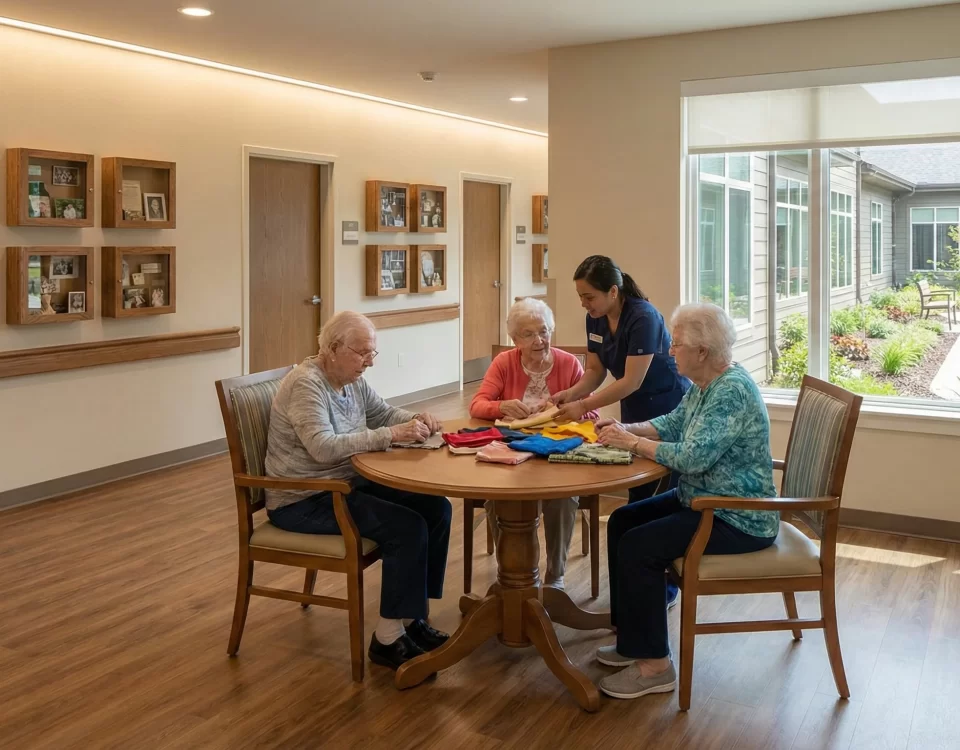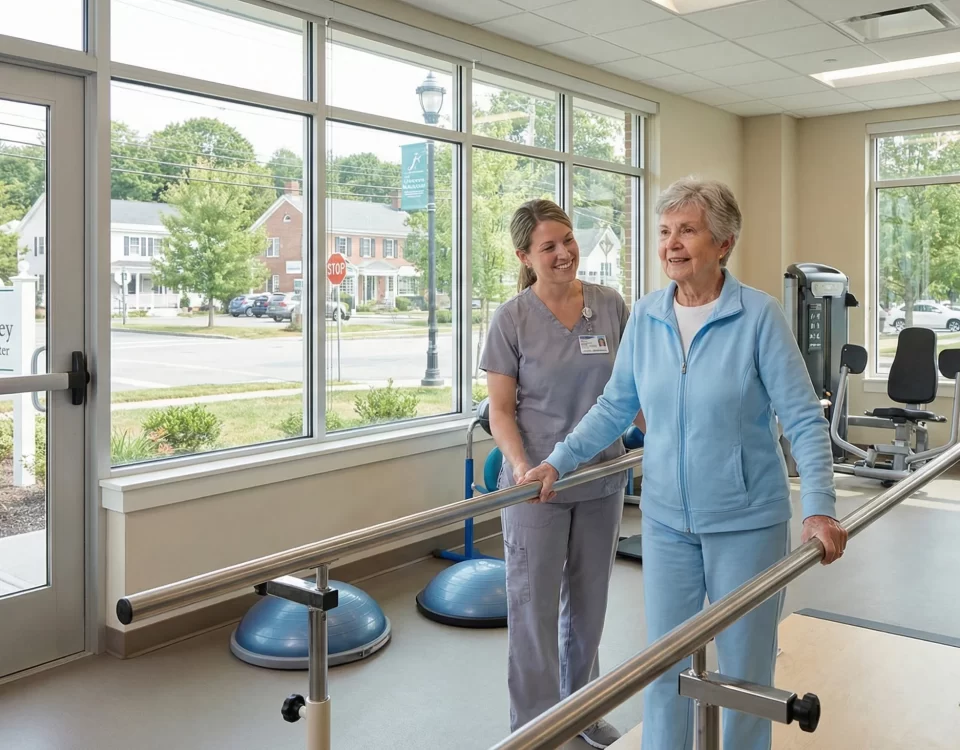Crafting Tailored Recovery Journeys at Our CT Rehab Facility
August 30, 2024Navigating Your Path to Recovery with Short Term Inpatient Rehabilitation
September 27, 2024Rediscovering Voices Speech Therapy’s Vital Role in Senior Rehabilitation
Introduction to the Power of Speech Therapy
Rehabilitation center speech therapy is often associated with children struggling with pronunciation or those who have experienced trauma. Yet, its significance in the realm of senior rehabilitation cannot be overstated. For caregivers and healthcare professionals working with seniors, especially those with conditions like stroke, dementia, and Parkinson’s disease, speech therapy offers a beacon of hope. This post will guide you through speech therapy’s profound impact on seniors, the conditions it addresses, and how it bolsters recovery.
Understanding the Impact of Conditions on Communication
Stroke’s Effect on Speech
Strokes often leave seniors with aphasia, a condition that hampers their ability to speak, understand language, or both. It can be incredibly frustrating for individuals who were once articulate to struggle with essential communication. Speech therapy provides these individuals with techniques to regain their ability to convey thoughts and emotions.
Dementia and Communication Challenges
Dementia gradually erodes a person’s cognitive faculties, including language. Seniors with dementia may struggle to find the right words or follow conversations. Speech therapists work to maintain as much mental and communicative function as possible, focusing on clarity and comprehension.
Parkinson’s and Its Unique Challenges
Parkinson’s disease affects the muscles used for speech, which can lead to softer speech, difficulty in articulation, and decreased facial expression. Speech therapy helps strengthen these muscles and improve speech volume and clarity.
The Role of Speech Therapy in Addressing These Conditions
Personalized Treatment Plans
Speech therapy is not a one-size-fits-all approach. Each senior’s needs are unique, and therapists develop personalized plans to cater to these individual requirements. This customization boosts the effectiveness of the therapy.
Techniques and Tools Used
Therapists use various techniques to enhance communication skills, including articulation exercises, breath control practices, and cognitive tasks. Tools like flashcards, apps, and even practice with peers or family members are integral to therapy sessions.
The Therapeutic Environment
Creating a supportive environment is crucial. Many rehabilitation centers, such as Candlewood Valley, emphasize compassionate care, providing a safe space for seniors to practice their skills without judgment.
Real-Life Success Stories
Overcoming Stroke with Courage
Consider Jane, a 78-year-old stroke survivor who lost her ability to speak fluently. Through months of dedicated speech therapy, she learned to form sentences again, regaining her independence and confidence.
A Dementia Patient’s Journey
Tom, living with early-stage dementia, initially faced significant challenges in verbal communication. He improved his comprehension skills with consistent speech therapy, helping him maintain strong bonds with family and friends.
Parkinson’s and Perseverance
Lucy, diagnosed with Parkinson’s, struggled with reduced speech volume. Her therapist introduced exercises to enhance vocal strength, allowing her to communicate effectively and participate actively in social gatherings.
The Significance of Early Intervention and Ongoing Therapy
Catching Issues Early
Early intervention can drastically alter the course of recovery. Identifying communication issues soon after a diagnosis allows for prompt action, maximizing the potential benefits of speech therapy.
Consistency is Key
Regular sessions reinforce learning and ensure progress is sustained. Even after initial goals are met, ongoing therapy can prevent regression, providing seniors with the best chance at a fulfilling life.
Monitoring and Adjustment
Therapists continually assess progress and adjust strategies as needed. This dynamic approach ensures therapy remains effective over time and adapts to the senior’s evolving needs.
Tips for Caregivers and Healthcare Professionals
Encouragement and Patience
Caregivers play a vital role in supporting seniors. Encouraging practice and being patient with progress are essential in building confidence and motivation.
Integrating Therapy into Daily Routines
Incorporating speech exercises into daily routines helps reinforce skills learned during therapy sessions. Simple activities like naming objects or reading aloud can be highly beneficial.
Collaboration with Speech Therapists
Open communication between caregivers and speech therapists ensures cohesive care. Sharing observations can help therapists tailor their approach, leading to better outcomes.
Conclusion
Speech therapy holds immense potential in rehabilitating seniors with conditions such as stroke, dementia, and Parkinson’s disease. By understanding its importance and integrating its practices into daily care, caregivers and healthcare professionals can profoundly impact the lives of those they support. For more detailed guidance and to explore speech therapy options, consider contacting specialized centers like Candlewood Valley, which offer tailored programs for senior rehabilitation.



